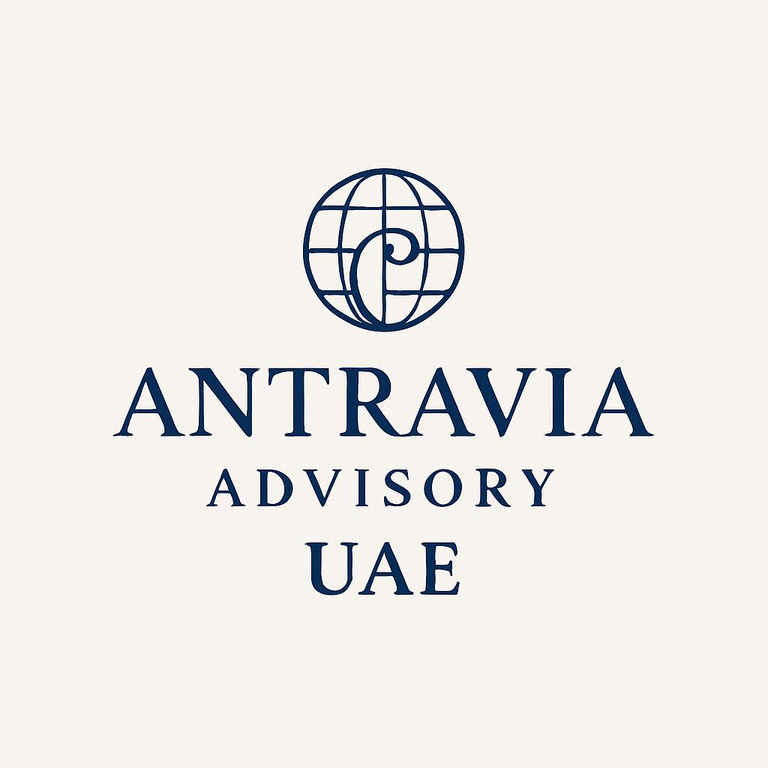Economic Substance Regulations (ESR) in the UAE: What Small Businesses need to know
Understand UAE Economic Substance Regulations. Learn which activities qualify, what reports are required, and how to stay compliant with Antravia AE.
TRAVEL FINANCE AND ACCOUNTING BLOG - U.A.E EDITION
10/10/20254 min read


Economic Substance Regulations (ESR) in the UAE: What Small Businesses need to know
Summary:
This blog explains the ESR framework and why it exists, which activities trigger it (distribution, headquarters, service centre, financing, IP holding), and what small businesses must file annually. It will outline deadlines, penalties for non-compliance, and how ESR ties into corporate tax and free zone incentives.
Introduction to ESR in the UAE
The UAE introduced Economic Substance Regulations (ESR) in 2019 as part of its commitment to international tax standards set by the OECD to combat base erosion and profit shifting (BEPS). ESR ensures that companies operating in the UAE have real economic presence and substance in the country, rather than just being shell entities for tax avoidance.
This is particularly relevant for small businesses, as non-compliance can lead to hefty penalties, even if your operations are modest.
While ESR might sound complex, it’s straightforward once broken down: if your business conducts certain “relevant activities,” you must prove you’re genuinely active in the UAE. There’s no size-based exemption, so small businesses are treated the same as larger ones. However, many small enterprises may not trigger ESR if they avoid the listed activities.
Who does ESR apply to?
ESR applies to all UAE entities, including:
Mainland companies
Free zone companies
Offshore companies (e.g., in Jebel Ali Free Zone or Ras Al Khaimah International Corporate Centre)
Branches, partnerships, and foundations
It doesn’t matter if you’re a small business with low turnover; applicability is based on whether you conduct a “Relevant Activity” during your financial year. Natural persons (individuals) are exempt unless they’re operating through a licensed entity.
If your small business is a simple trading firm without international group ties or specific activities listed below, you likely don’t need to comply. But if you’re part of a multinational group or handle IP/distribution, check carefully as ignorance isn’t a defense.
Relevant Activities under ESR
ESR targets nine specific “Relevant Activities.” If your business engages in any of these, you’re in scope:
Banking: Regulated banking operations.
Insurance: Insurance and reinsurance activities.
Investment Fund Management: Managing funds or investments for others.
Lease-Finance: Providing credit or financing leases.
Headquarters: Providing management services to related entities (e.g., a small HQ overseeing overseas affiliates).
Shipping: Owning, operating, or managing ships for transport.
Holding Company: Holding shares or equities, deriving income from dividends/capital gains.
Intellectual Property (IP): Holding, exploiting, or licensing IP assets like patents or trademarks.
Distribution and Service Centre: Buying goods from related foreign entities for resale or providing services to related foreign parties.
For small businesses, common triggers include distribution (e.g., importing and reselling goods) or service centers (e.g., consulting for overseas group companies). If your activity is “high-risk” (e.g., IP acquired from related parties), stricter tests apply.
Substance Requirements: Proving your Presence
If you’re conducting a Relevant Activity and earning income from it, you must demonstrate “economic substance” in the UAE. This means:
Core Income-Generating Activities (CIGA): Perform key activities in the UAE (e.g., decision-making, risk management).
Directed and Managed in the UAE: Hold board meetings in the UAE with quorum present; minutes must be kept.
Adequate Resources: Have qualified employees, physical premises (office space), and operating expenditure proportionate to your activities. For small businesses, this could be as simple as a shared office and part-time staff—outsourcing is allowed if managed in the UAE.
Records: Maintain documentation to prove compliance, available for audits.
Holding companies have a lighter test: just prove UAE management and adequate resources. No need for full CIGA if income is passive.
Small business tip: Scale your substance to your operations. A tiny distribution firm doesn’t need a large team, but you must show real activity and not just a PO box.
Reporting Obligations and Deadlines
All entities conducting Relevant Activities must file an ESR Notification, even if no income is earned from them. If income is earned, file an ESR Report too.
ESR Notification: Basic info on activities and income. Due within 6 months of your financial year-end (e.g., for year ending Dec 31, 2025, due by June 30, 2026).
ESR Report: Detailed proof of substance, including financial data and evidence. Due within 12 months of year-end (e.g., Dec 31, 2026, for the above).
Filing is done via the Ministry of Economy’s online portal (esr.moe.gov.ae). The Federal Tax Authority (FTA) assesses reports and may request audits.
Even if you’re exempt (no Relevant Activities), some free zones require a “no activity” declaration. Check your licensing authority.
Penalties for Non-Compliance
Penalties are enforced by the FTA and can hit small businesses hard:
Failure to file Notification: AED 20,000
Failure to file Report or provide accurate info: AED 50,000
Failure to demonstrate substance: AED 50,000–300,000, plus potential exchange of info with foreign tax authorities
Repeat offenses: Up to AED 400,000, license suspension, or cancellation
As of October 2025, no major ESR updates, but the FTA has emphasized integration with Corporate Tax (CT) reporting, so ensure your ESR data aligns with CT filings to avoid red flags.
Tips for Small Businesses to Stay Compliant
Self-Assess Annually: Review your activities at year-start. Use FTA’s ESR Guide (available on tax.gov.ae) or consult an advisor.
Document Everything: Keep records of meetings, expenses, and staff for at least 6 years.
Leverage Free Zones: Some free zones offer ESR compliance support, but don’t assume exemption—QFZPs under CT still need ESR if relevant.
Budget for Compliance: Small businesses can outsource admin (e.g., to PRO services), costing AED 5,000–15,000 annually.
Seek Help Early: If unsure, use FTA’s helpline or portals like EmaraTax for clarification. Non-compliance can scare off investors or banks.
Final Antravia Thoughts
ESR keeps the UAE attractive for genuine businesses while meeting global standards. For small businesses, it’s not a burden if you’re truly operating here, so focus on substance over form.
Staying compliant builds credibility and avoids surprises during audits. If your setup involves related parties or IP, professional advice is essential.
For more, check official FTA resources or contact Antravia AE for tailored guidance.
Ready to set up compliantly? See our guides on company setup and banking.
economic substance UAE, ESR filing, ESR report UAE, ESR penalties, UAE compliance


This article by Antravia is general information, not advice. Regulations evolve quickly (especially CT, QFZP, and excise). Verify key positions against the primary sources below or with a locally licensed advisor.
Antravia Advisory U.A.E.
Where Travel Meets Smart Finance
Email:
Contact us:
© 2025. All rights reserved. | Disclaimer | Privacy Policy | Terms of Use | Accessibility Statement
© 2025 — Antravia.ae part of the Antravia Group.
Antravia.com | Antravia.co.uk | Antravia.ae |
Finance.travel | Tax.travel | Consultancy.travel | Vat.travel | Vat.claims |
USSales.tax | EuroVAT.tax | UKVAT.tax |
contact@antravia.com
Antravia LLC
